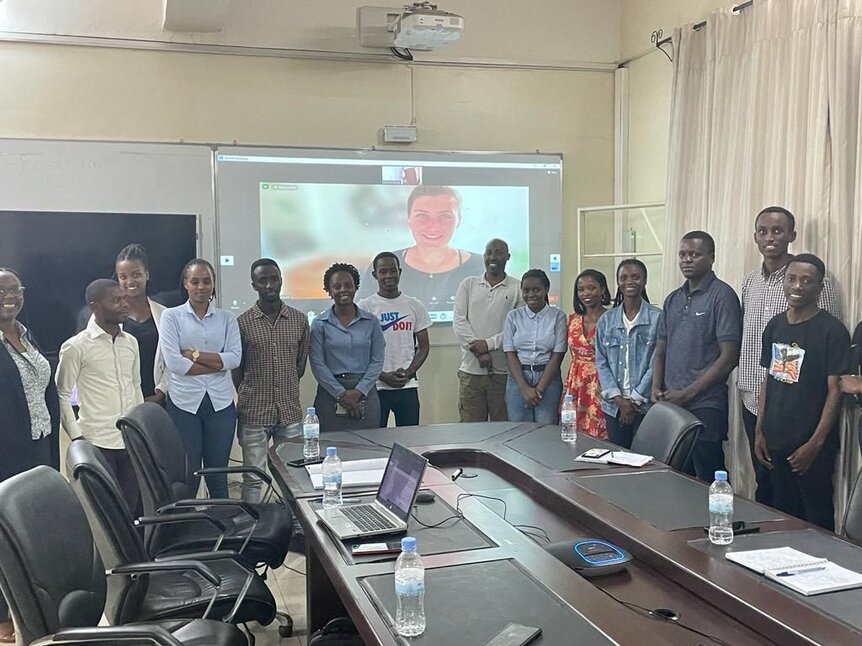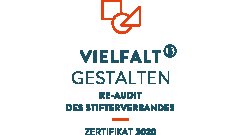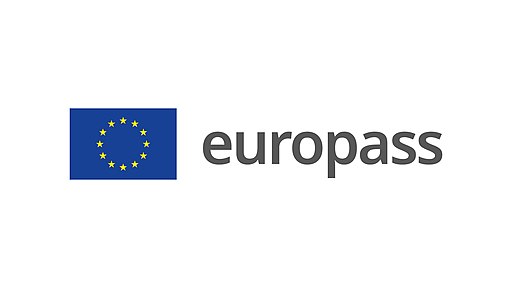Entrepreneurship Trainings
As one facette of our research, we focus on entrepreneurship trainings and the entrepreneurial mindset of students and employees. In particular, we are interested in the development of a student's entrepreneurial mindset by mini-interventions. Our objective is enabling students to think and act entrepreneurially. With this specific promotion of their employability, our mission is to prepare today's students for their future challenges when entering the job market. Within our team, it is Sophia whose research is focusing on how to make mini-interventions for entrepreneurial training purposes as impactful as possible.
Why teaching entrepreneurship skills is important
Entrepreneurial skills are one focal point in entrepreneurship education research. Following the assumption that "entrepreneurs are made, not born", research here focuses on teaching relevant skills and the effects of relevant training programs, especially in the university context as the last step before entering the workforce (e.g., Gielnik et al., 2015; Colombelli et al., 2022; Packham et al., 2010; Kepaliene et al., 2016; Ramos-Rodriguet et al., 2019). Accordingly, university entrepreneurship programs have increased in number in recent years (e.g., Ramos-Rodríguez et al., 2019; Fayolle, 2013; Kuratko, 2005). In particular, recent entrepreneurship research addresses the entrepreneurial mindset, defined as an overarching cognitive perspective that enables individuals to create value by identifying and seizing opportunities, making decisions with limited information, and remaining adaptable under often uncertain and complex conditions (Daspit et al., 2021).
Workshop with students of the University of Rwanda
As part of the DAAD-funded project KeyComp4Practice@RU by University of Koblenz and University of Rwanda Sophia had – thanks to Prof. Dr. v. Korflesch (University of Koblenz) - the chance to gain practical experiences with her research and conducted an interdisciplinary three-day workshop with students from Rwanda. Entitled "E101: The Project Factory", she addressed the topic of entrepreneurial mindset in its various facettes and looked at both central findings from research as well as interactive elements.
Mini interventions as a possible solutions for universities and companies
Current training programs are often characterized by long durations (>12 weeks). However, university teaching is characterized by short contact times of the teachers with students. All the more so, for companies only limited resources (time and money) are available for the further qualification of their employees. Therefore based on time critical mini-interventions, Sophias project aims towards deriving a training program for the development of an entrepreneurial mindset for both students and employees.
Introductory Literature
- Campos, F., Frese, M., Goldstein, M., Iacovone, L., Johnson, H. C., McKenzie, D., & Mensmann, M. (2017). Teaching personal initiative beats traditional training in boosting small business in West Africa. Science, 357(6357), 1287-1290.
- Daspit, J., Fox, C. J., Findley, S. K. (2021). Entrepreneurial Mindset: An integrated Definition, A Review of Current Insights, and Directions for Future Research. Journal of Small Business Management, DOI: 10.1080/00472778.2021.1907583
- Davis, M. H., Hall, J. A., & Mayer, P. S. (2016). Developing a new measure of entrepreneurial mindset: Reliability, validity, and implications for practitioners. Consulting Psychology Journal: Practice and Research, 68(1), 21.
- De Hoyos-Ruperto, M., Pomales-García, C., Padovani, A., & Suárez, O. M. (2017). An entrepreneurship education co-curricular program to stimulate entrepreneurial mindset in engineering students. MRS Advances, 2(31-32), 1673-1679.
- Gielnik, M. M., Frese, M., Kahara-Kawuki, A., Katono, I. W., Kyejjusa, S., Ngoma, M., Munene, J., Namatovu-Dawa, R., Nansubuga, F., Orobia, L., Oyugi, J., Sejjaaka, S., Sserwanga, A., Walter, T., Bischoff, K. M., & Dlugosch, T. J. (2015). Action and action-regulation in entrepreneurship: Evaluating a student training for promoting entrepreneurship. Academy of Management Learning & Education, 14(1), 69–94. doi.org/10.5465/amle.2012.0107
- González-Serrano, M. H., Crespo Hervás, J., Pérez-Campos, C., & Calabuig-Moreno, F. (2017). The importance of developing the entrepreneurial capacities in sport sciences university students. International Journal of Sport Policy and Politics, 9(4), 625-640.
- Hammerschmidt, J., Kraus, S., & Jones, P. (2022). Sport entrepreneurship: Definition and conceptualization. Journal of Small Business Strategy, 32(2). doi.org/10.53703/001c.31718
- Haynie, J. M., Shepherd, D., Mosakowski, E., Earley, P. C. (2010). A situated metacognitive model of the entrepreneurial mindset. Journal of Business Venturing, 25(2010), 217-229.doi: 10.1016/j.jbusvent.2008.10.001
- Hemme, F., Morais, D. G., Bowers, M. T., & Todd, J. S. (2017). Extending sport-based entrepreneurship theory through phenomenological inquiry. Sport Management Review, 20(1), 92-104. doi.org/10.1016/j.smr.2016.07.005
- Kuratko, D. F., Fisher, G., & Audretsch, D. B. (2020). Unraveling the entrepreneurial mindset. Small Business Economics. doi:10.1007/s11187-020-00372-6
- Laalo, H., & Heinonen, J. (2016). Governing the entrepreneurial mindset: Business students’ constructions of entrepreneurial subjectivity. European Educational Research Journal, 15(6), 696-713.
- Lindberg, E., Bohman, H., & Hulten, P. (2017). Methods to enhance students’ entrepreneurial mindset: A Swedish example. European Journal of Training and Development, 41(5), 450-466. doi: 10.1108/EJTD-10-2016-0078
- Mathisen, J. E., & Arnulf, J. K. (2013). Competing mindsets in entrepreneurship: The cost of doubt. The International Journal of Management Education, 11(3), 132-141.
- Naumann, C. (2017). Entrepreneurial mindset: A synthetic literature review. Entrepreneurial Business and Economics Review, 5(3), 149-172.
- Nová, J. (2015). Developing the entrepreneurial competencies of sport management students. Procedia-Social and behavioral sciences, 174, 3916-3924.
- Pellegrini, M. M., Rialti, R., Marzi, G., & Caputo, A. (2020). Sport entrepreneurship: A synthesis of existing literature and future perspectives. International Entrepreneurship and Management Journal, 16(3), 795-826. doi.org/10.1007/s11365-020-00650-5
- Radaelli, G., Dell’Era, C., Frattini, F., & Messeni Petruzzelli, A. (2017). Entrepreneurship and human capital in professional sport: A longitudinal analysis of the italian soccer league. Entrepreneurship Theory and Practice, 42(1), 70-93. doi.org/10.1177/1042258717732957
- Rauch, A. (2019). Opportunities and threats in reviewing entrepreneurship theory and practice. Entrepreneurship Theory and Practice, 44(5), 847-860. doi.org/10.1177/1042258719879635










